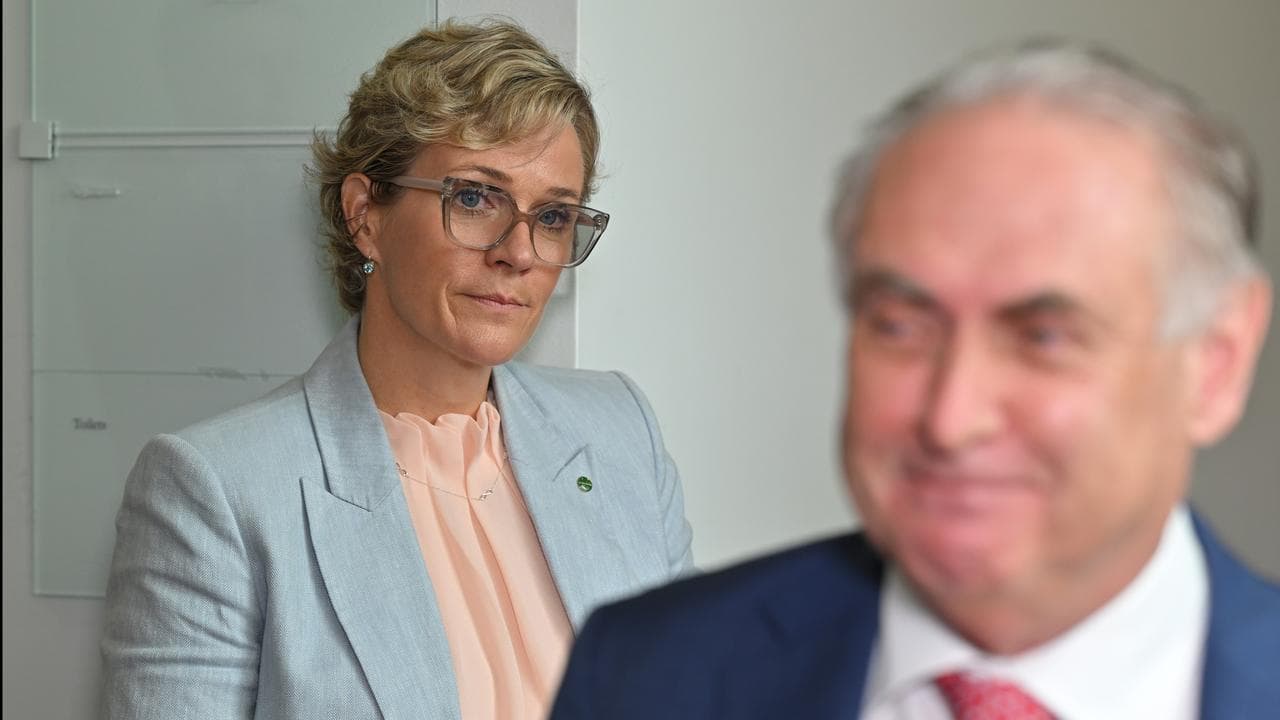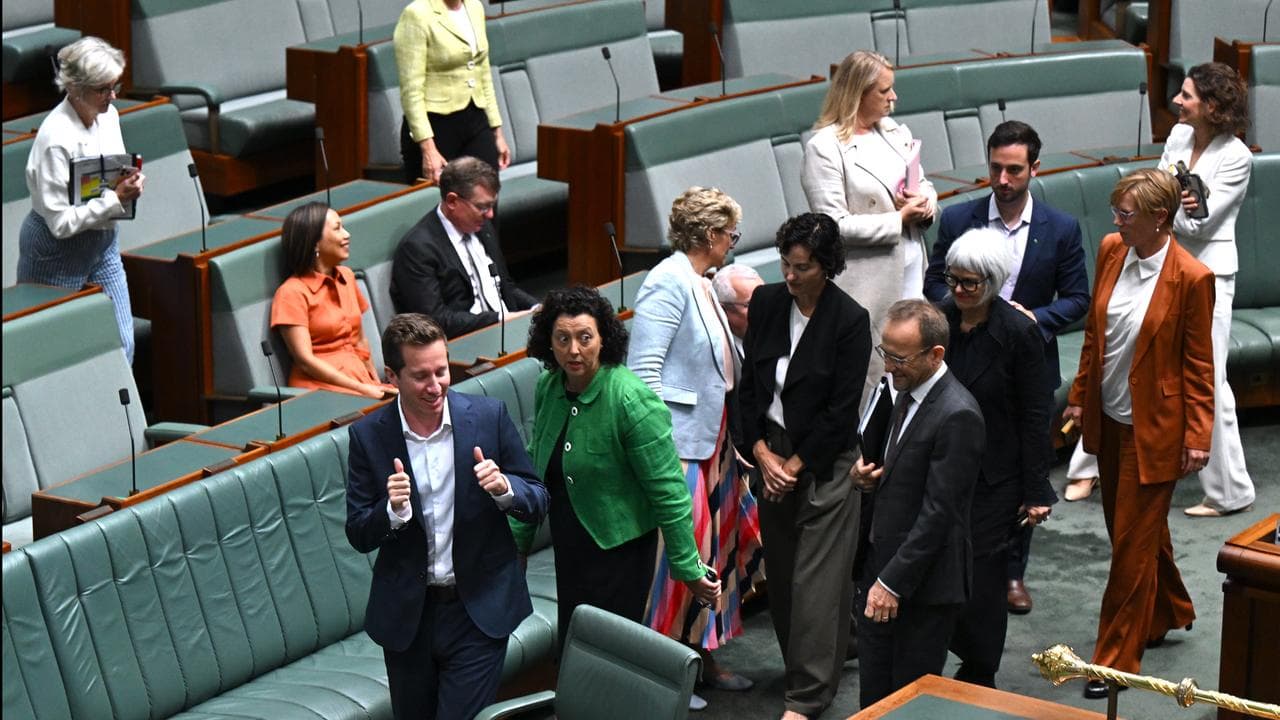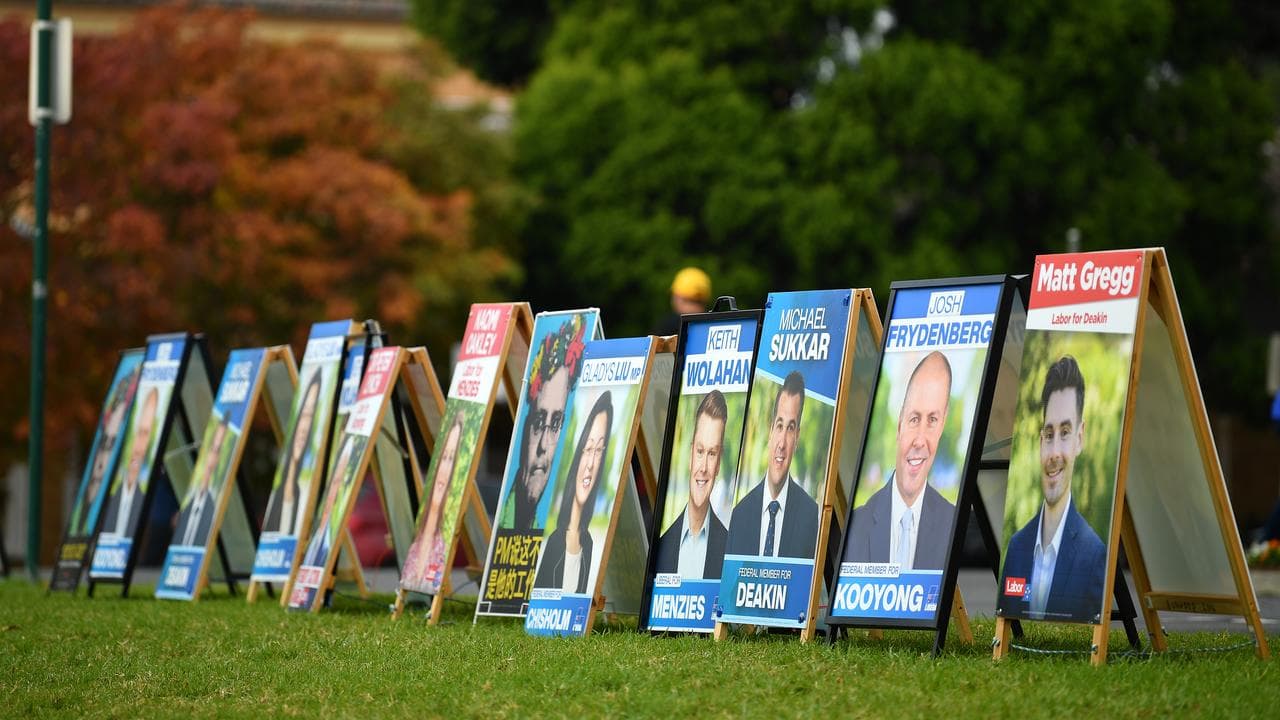
Fired-up independents are vowing to stonewall controversial electoral reforms and use any leverage in a hung parliament to rebalance the scales.
The reforms include a campaign spending cap of $800,000 per electorate but registered political parties will be able to access a $90 million war chest for general advertising.
Independent Zali Steggall confronted Special Minister of State Don Farrell, who spearheaded the legislation, at Parliament House on Thursday as the law passed, accusing the major parties of collaborating to lock out independents.
The overall cap stacked the field for the major parties, which could save cash in safe seats and inundate close contests with party branding or attack ads above and beyond what a single person could access, Ms Steggall said.
Independents are also upset that more public money will be given to parties per vote received.
This would disproportionately help the majors, which would receive millions of dollars more, and entrench a two-party system, Ms Steggall said after crashing Senator Farrell's press conference and chastising him over the laws.
"Why don't you tell this room of people that ... the big money that will be in politics is the public money?" Ms Steggall said to the Labor senator.

Senate candidates have different caps - $200,000 per seat in a given state or territory.
This limits campaign spending to $600,000 for the ACT and $9.2 million for NSW.
The laws start in mid-2026 so the next election would be the last at which independents could effectively challenge incumbents, Ms Steggall said.
"This is not how democracy can thrive," she said at a subsequent press conference.
"What you want is choice. You want competition."
Senator Farrell, who denied the rules were stacked in favour of the major parties, said they stripped big money from politics and Labor had taken a haircut on what it could receive and spend.
"The whole process pushes downward pressure on the cost of elections so ordinary Australians have a chance to be elected, not those candidates that are supported by the billionaires and the millionaires," he said.
An individual can donate $50,000 to a political campaign per party branch each calendar year, which increases to $450,000 in total if they donate to a branch in each state and territory as well as the national arm.
Donors hedging their bets and giving cash to multiple parties will be capped at $1.6 million nationwide, although this is limited to $250,000 in any state or territory.
Campaign spending for non-political parties, such as unions and special interest groups, will be capped at $11 million.
Aggregated donations of more than $5000 will have to be disclosed - down from the 2023/24 threshold of $16,900 - and disclosures must happen within weeks instead of the current annual returns.

Independents have vowed fairer reforms will be part of any minority government negotiations if there was a hung parliament after the next election.
Other electoral changes include how peak bodies accept cash from affiliated groups and allocate those funds to electoral campaigns, with a mandated account where political spending can be audited.
The Australia Institute's Bill Browne called for all donations from corporations to be disclosed, reforms to people paying to access politicians and for electoral commission payments to be distributed before elections to make them fairer for people challenging incumbents.




